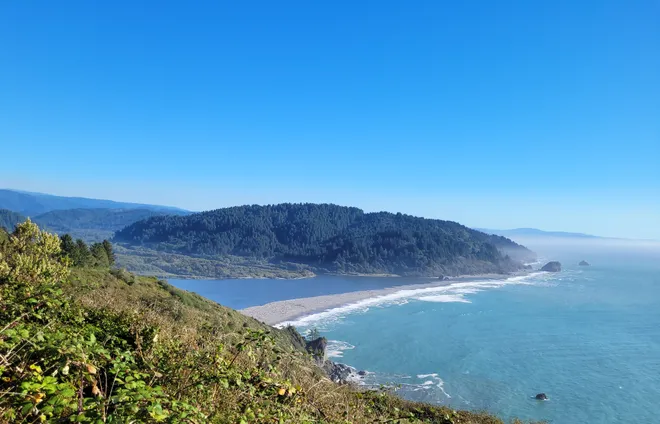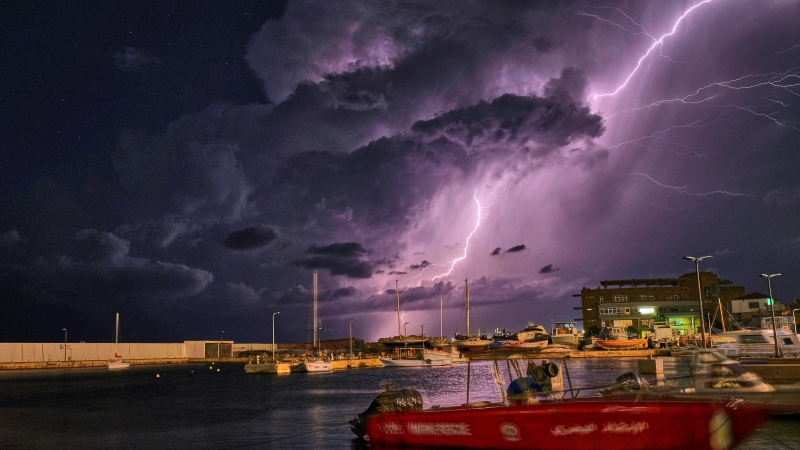Biden Administration announces first-ever Ocean Justice Strategy. What's that?

The White House will announce its first-ever Ocean Justice Strategy Friday at COP28 in Dubai, which it says will advance the nation's commitment to environmental justice for all.
The Biden Administration says indigenous communities have stewarded marine habitats for centuries. Now those communities are among those who may be most at risk for health and environmental harm from those habitats.
The strategy, which the administration describes as a "vision for ocean justice," was developed with input from public comments and from consultation with Tribal nations and roundtables with U.S. Territories and Native Hawaiian organizations.
The new strategy includes a variety of marginalized groups, including Black, Latino and Native communities.
“The ocean is a life source for us all, but because of historic injustices and underinvestment, some communities are hit harder by devastating climate change impacts,” said Brenda Mallory, the chair of the White House Council for Environmental Quality. “The Biden-Harris Administration’s new Ocean Justice Strategy will help to address historic inequities, improve the well-being of people in communities connected to the ocean, and safeguard a healthy ocean for everyone.”
The Biden Administration’s Ocean Climate Action Plan, released in March 2023, called for the creation of the new strategy.
What is the Ocean Justice Strategy?
The Ocean Justice Strategy describes the vision, goals and high-level objectives for coordinating and guiding ocean justice activities across the Federal government, according to the Federal Register. It builds on current administration activities and commitments aimed at advancing environmental justice.
It will also serve as a reference for Tribal, Territorial, State, and local governments, regional management bodies, and non-governmental groups.
The new strategy is a broad outline of the administration's priorities and the administration plans to follow up with more specifics in the months ahead.
'This strategy clearly sets out our values'
According to the new initiative, "ocean communities with a significant proportion of people who are Black, Latino, Indigenous and Native American, Asian American, Native Hawaiian, or Pacific Islander may be disproportionately affected by ocean-related health and environmental harms and hazards, as may be communities with a significant proportion of people who experience persistent poverty or other forms of social inequality."
“President Biden has made it a priority to address the climate crisis for all Americans,” said Arati Prabhakar, director of the White House Office of Science and Technology. “This strategy clearly sets out our values as the climate changes. When we conduct research, collect data and make decisions about the ocean, we must engage with communities whose lives are intertwined with the ocean and the Great Lakes.”
Conservation group applauds the new strategy
"It is often the most vulnerable communities that suffer the greatest impacts from climate change," said Beth Lowell, Oceana's vice president for the United States. "We celebrate the Biden administration’s commitment to ensure that these voices are heard in future government decisions."
Offshore drilling, fisheries management and reducing plastic pollution are just a few of the areas where these voices are needed, Lowell said.
'Ocean justice policy will protect the ocean for all'
Ocean conservation will be more successful and have better outcomes if Indigenous peoples and communities of color are included, said Marce Gutierrez-Graudins, founder and executive director of Azul, a nonprofit focused on Latinos at the intersection of ocean conservation and environmental justice.
“For too long the ocean conservation movement has been pretty exclusionary,” Gutierrez-Graudins said.
“It is important that we have policies that include and serve everybody because conservation measures do not work unless they have majority buy in,” she said. “I’m excited to see that the federal government is walking along on this.”
She founded Azul in 2011 after being the only Spanish speaker among 60 people appointed to a group to help create marine protected areas in Southern California, with no access to materials or outreach for other Latinos.
“We have had disproportionate burdens placed on Indigenous communities and communities of color, due to ocean pollution, lack of access and industrial development,” Gutierrez-Graudins said. “Having an ocean justice policy will protect the ocean for all.”
More:Climate advocates say the oceans are overlooked in climate change. Biden's new action plan would change that.

Disclaimer: The copyright of this article belongs to the original author. Reposting this article is solely for the purpose of information dissemination and does not constitute any investment advice. If there is any infringement, please contact us immediately. We will make corrections or deletions as necessary. Thank you.






